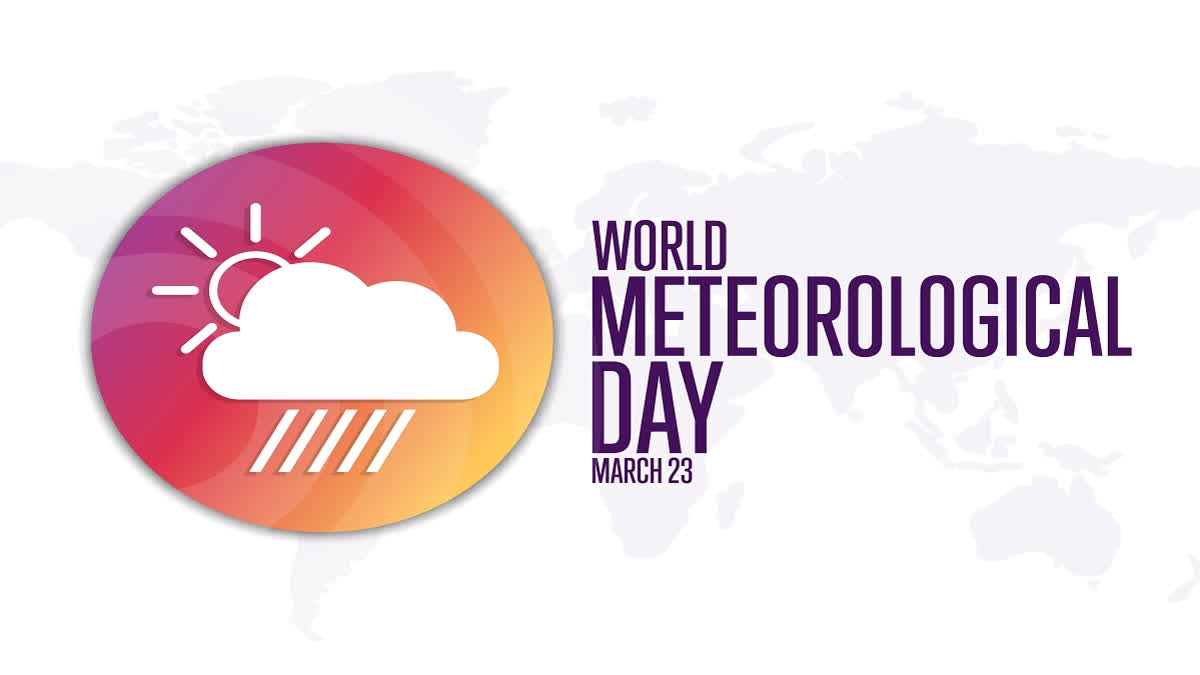Hyderabad:World Meteorological Day is celebrated on March 23 every year. The day commemorates the establishment of the World Meteorological Organization (WMO), and it focuses on the behavior of the Earth's atmosphere. The day also raises awareness of people's role in safeguarding the Earth's atmosphere.
Forecasts of what the weather will be are no longer enough. Impact-based forecasts that inform the public of what the weather will do are vital to save lives and livelihoods.Yet, one in three people are still not adequately covered by early warning systems, the World Meteorological Organisation (WMO) had said.
Theme for World Meteorological Day 2024:World Meteorological Day is celebrated with a different theme every year. The theme of World Meteorological Day 2024 is 'At the Frontline of Climate Action'.
History of World Meteorological Day:World Meteorological Day commemorates the establishment of the World Meteorological Organization (WMO) on March 23, 1950. WMO headquarters is situated in Geneva, Switzerland. The International Meteorological Organization (IMO) laid the groundwork for the organization, which was inspected by the Vienna International Meteorological Congress in 1873. WMO was ultimately put into action in 1950 with the approval of the WMO convention. WMO became a United Nations (UN) specialized agency nearly a year after its establishment.
Significance of World Meteorological Day:World Meteorological Day is a significant day since it focuses on the worldwide recognition of many issues affecting the globe. The day is celebrated by raising awareness about a variety of environmental issues that affect people all around the world. COVID-19 has complicated the challenges facing society and weakened coping mechanisms.
Increasing risks
Over the past 50 years, there were over 11,000 reported weather, climate, and water-related disasters, resulting in just over two million deaths and $3.64 trillion in economic losses. That breaks down to a daily global average of 115 deaths and $202 million in economic losses. According to WMO's 'Atlas of Mortality and Economic Losses from Weather, Climate and Water Extremes 1970-2019', the number of disasters increased five-fold between 1970 and 2019 while the economic losses increased even more—by a factor of seven. "However, thanks to improved early warnings and disaster risk reduction strategies, the number of deaths decreased almost three-fold since 1970," the WMO said.
Gaps in Multi-Hazard Early Warning Systems
- Pointing out that just 40 per cent of WMO members have Multi-Hazard Early Warning Systems (MHEWS), the WMO said, there are large gaps in weather observations, especially in Africa and Small Island Developing States.
- The WMO Global Multi-hazard Alert System (GMAS) seeks to address the challenges by increasing the availability of authoritative warnings and information from the WMO Severe Weather Information Centre and to support early action.
- Being prepared and able to act at the right time, in the right place, can save many lives and protect the livelihoods of communities everywhere, both now and in the future.
